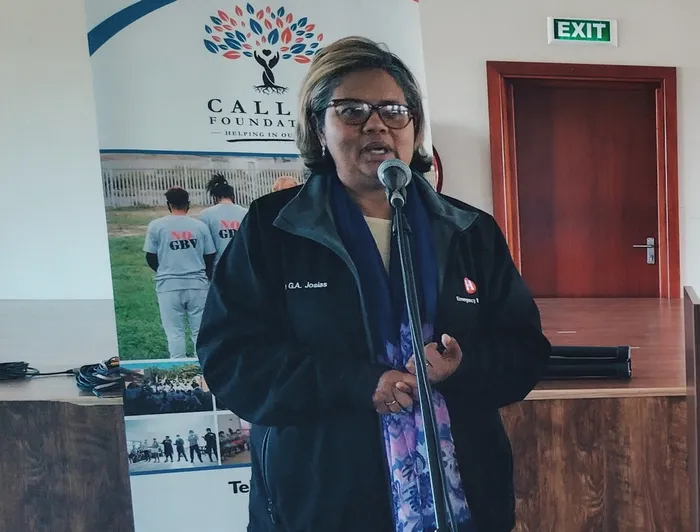'I knew this was my last shot for a better life’

Dr Genine Josias, medical officer at the Thuthuzela Care Centre at Karl Bremer Hospital, says the country has 61 care centres for rape victims but needs 180.
A 37-year-old rape survivor told last week how she was raped at 17 and then again a year later by a man who worked at an Athlone taxi rank. She reported it, but nothing happened.
The woman was one of the speakers at a lunch for some 50 female volunteers at Star College, in Bridgetown.
They came from the Bridgetown Neighbourhood Watch, the Bridgetown Walking Bus, Athlone and Manenberg police stations’ victim-support rooms, the Leaky Shack organisation from Heideveld, and soup kitchens in Bridgetown and Silvertown.
The rape survivor described how she had started using drugs to numb her pain and had tried to kill herself many times.
At 19 she got married and went on to have three children. Her husband was a drug addict, but she accepted it because he provided for her and her kids.
“Belonging to gangs and using drugs was normal for us,” she said. “For the first four years, it seemed normal, and then he lost his job and became a career criminal. He was in and out of prison... We were committing a life of crime and living off the proceeds of it. The abuse affected me and my boys, and I only realised that later.”
She experienced economic, sexual, verbal and physical abuse at the hands of her husband; no one trusted her; she became alienated from her family; and, as her marriage became increasingly toxic, she started having anxiety and panic attacks.
“During the pandemic, things became worse. Criminal actives got worse, and he had many affairs with women who lived in the area and women I knew. The neighbourhood watch and police were at our door most days.”
She decided she needed to turn her life around, and two years ago, she joined the Callas Foundation, a non-profit organisation in Athlone that helps abused women and children. She found support there and realised she was not alone, she said. She went on to get a protection order and divorce her husband.
“It was not easy,” she said. “I couldn't face what I had to deal with, but I knew this was my last shot for a better life for me and my boys. Many times, the criminal life looked easier than what we were doing - struggling. I worked for Callas for two years , people started trusting me again and I reintegrated myself into society.”
She said she realised her life was changing for the better when she went from living in her car to a two-bedroom flat in Pinelands with her children. Now she has her driver’s licence and works for an insurance company.
“A month ago, I started my new job, and I learnt that my past does not define me; I define me.”
Also at the function, Dr Genine Josias, a medical officer at the Thuthuzela Care Centre, at Karl Bremer Hospital, said the country had 61 of the centres but needed 180. Among other things, the centres offer counselling, medical attention and assistance with opening criminal cases for rape victims.
“We have been asking the health department to open more centres. Many women at these centres need so much help and have so many challenges so be kind when you walk into these centres,” she said.
Dr Josias said it was sad that more women didn’t seek help when the early stages of abuse started.
It was important for women to take care of themselves because they did so much for others, she said. Meditation, mindfulness and exercise were a few ways women could relax and reflect.
Dr Josias said that back in the 1990s there had been no special centres for rape victims - they had had to wait in line with other patients at a hospital.
“At the time, medical school didn't teach us how to examine rape victims so we worked from a book. Now it has become better... That time there were no HIV counsellors or doctors 24/7 so victims had to wait for day staff.”
Victims aged 16 and older could report the crime at the care centre, but those under 16 had to go to the police station, she said.
“Rape victims must seek help in three days so that they can start HIV medicine and within five days to prevent unwanted pregnancies. It is important to note that you can still come for counselling even after six or 16 years.”
Bridgetown ward councillor Rashid Adams said communities needed to work together to end the cycle of violence.
“Boys need to be taught not to lift their hands, and girls mustn’t be okay with it. We need to break down the cycle of violence in our communities. Talking in silos doesn't help; we need to work together.”
